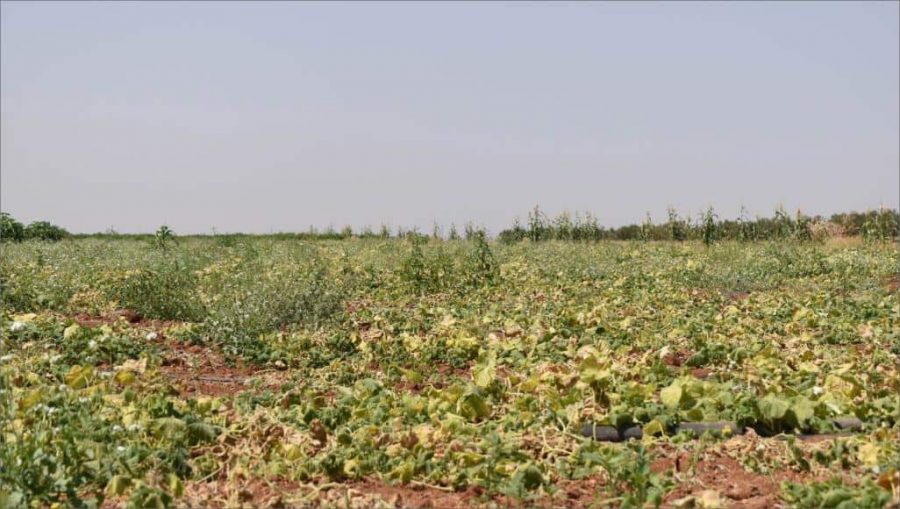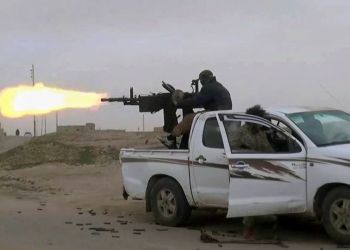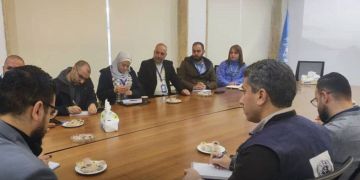This post is also available in:
![]() العربية
العربية
Agricultural sector conditions in Deir Ezzor have improved after Daesh’s withdrawal, where agriculture was in total deterioration during Daesh control of the region.
However, the SDF did not provide the hoped-for support needed in the agricultural sector in Deir Ezzor, which farmers were waiting for after the lean years they had lived.
The shortage of irrigation water for the agriculture is at the top of the list of Deir Ezzor farmer’s problems, so a number of water pumping stations and special canals reaching the land along the Euphrates river bank on the north side have been reactivated for irrigating the land from the western countryside to Al-Shaitat area.
All farmers in the villages and towns under the control of SDF believe that the high prices of the agriculture production’s basic supplies, such as fertilizers and agricultural pesticides, drive the majority of farmers not to cultivate large lands for fear of agricultural pests and the possible failure of the crops.
On another point, the SDF have recently allowed the agricultural land to be licensed in the badiyah and decided to provide farmers with 20 litres of diesel fuel for each “dunum” of the lisenced land in three batches and at a price of 50 SYP per liter. But the SDF officials refused to provide farmers with diesel fuel which is necessary for agriculture, arguing that the recent heavy rain was sufficient.
Adding to that, the difficulties which farmers face to obtain manure, that is supposed to be sold to farmers for 10,000 SYP per bag, while it is sold on the black market at high prices which farmers can not afford to buy in large quantities to meet the need of the crop.
In the northern countryside, the cultivation of winter crops continues as it depends on rainwater, but there are projects which depend on groundwater wells, as in Rwished area, north of Deir Ezzor, where most of the peasants turned to rain-fed agriculture as it costs less and depends on rainwater.












